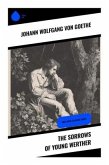In "Tess of the D'Urbervilles," Thomas Hardy presents a poignant exploration of social class, gender, and rural life in Victorian England. The novel weaves a tragic narrative around Tess, a young woman of humble origins who is bright yet naïve, navigating a world rife with moral hypocrisy and societal expectations. Hardy's richly descriptive prose immerses the reader in the pastoral landscapes of Wessex while employing a naturalistic style that exposes the cruel determinism faced by Tess and others in her milieu. The use of symbolism and a nonlinear narrative structure enhances the emotional depth of Tess's experiences, making the novel a seminal work in the study of existential philosophy and feminist literary criticism. Thomas Hardy, born in 1840, was deeply influenced by his upbringing in rural Dorset and the hardships faced by the working class. Throughout his life, Hardy confronted the constraints of Victorian morality and the complexities of human emotion, which are vividlyencapsulated in Tess's story. His experiences as an architect, combined with his literary ambitions, drove him to explore themes of fate and societal injustice, reflecting the conflicts inherent in human desires and societal norms. This novel is highly recommended for readers who seek a profound understanding of the human condition within a historical context. Hardy's intricate character development and stark realism invite readers to engage deeply with Tess's plight, prompting reflection on the nature of morality and individual agency. "Tess of the D'Urbervilles" remains a moving testament to the struggles of women, making it a timeless piece essential for both literature enthusiasts and scholars.
Bitte wählen Sie Ihr Anliegen aus.
Rechnungen
Retourenschein anfordern
Bestellstatus
Storno








